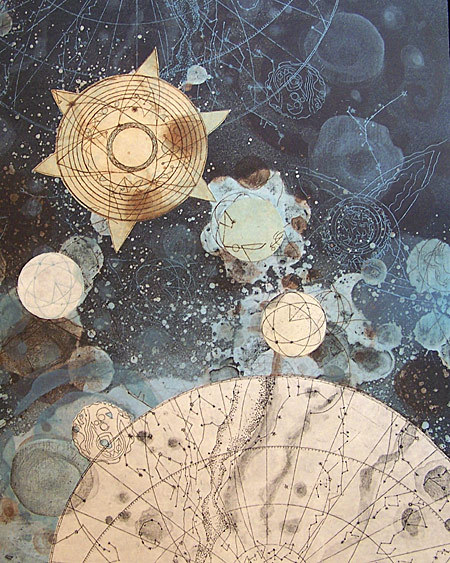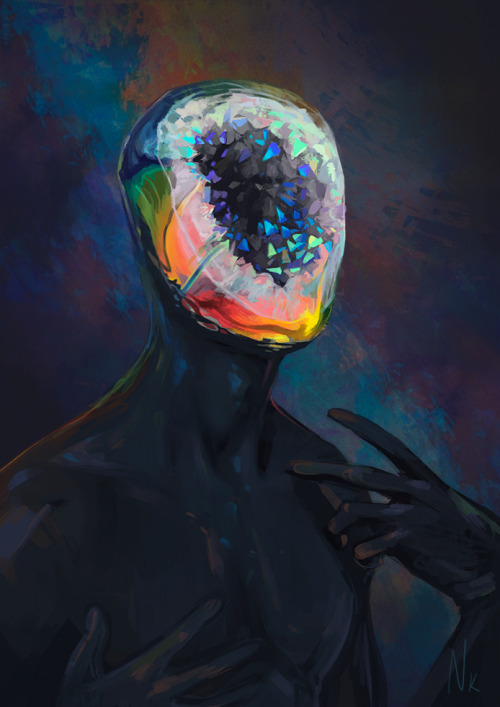I Don’t Have Plots, I Have Several Hundred Cool, But Vague Characters And Unconsecutive Scenes That
I don’t have plots, I have several hundred cool, but vague characters and unconsecutive scenes that may or may not belong in the same universe
More Posts from Lauremaster and Others
Billi speaks. (via billispeaks)




Celestial Mapping and Celestial Proportions by Tallmadge Doyle
love the idea that infernal is a language tieflings don’t have to learn, they just have it built in from birth, and they quickly discover that they can say anything they want out loud in infernal, since almost nobody else understands any of it.
thieves have thieves’ cant, tieflings have the secret language of satan


Talon!Stephanie Brown Commission for @our-happygirl500-fan ! This was v fun to work on tbh. Commission Info

Geode (x)
I generally like and support both conspiring and d&d
I’d love a co-conspirator to help me plan d&d games


Medusa with the Head of Perseus, Luciano Garbati, 2008
Also, this just in from the Science World:
MIT researchers just developed (as of September 2019) a new BLACKEST BLACK which is more light absorbing than Vantablack
While I think they are pursuing a patent, this article indicates they plan to make it “freely available to any artist to use for a noncommercial art project”
http://news.mit.edu/2019/blackest-black-material-cnt-0913




if you’ve ever wondered what it’s like to live in the midwest, this is it.
I have … a tip.
If you’re writing something that involves an aspect of life that you have not experienced, you obviously have to do research on it. You have to find other examples of it in order to accurately incorporate it into your story realistically.
But don’t just look at professional write ups. Don’t stop at wikepedia or webMD. Look up first person accounts.
I wrote a fic once where a character has frequent seizures. Naturally, I was all over the wikipedia page for seizures, the related pages, other medical websites, etc.
But I also looked at Yahoo asks where people where asking more obscure questions, sometimes asked by people who were experiencing seizures, sometimes answered by people who have had seizures.
I looked to YouTube. Found a few individual videos of people detailing how their seizures usually played out. So found a few channels that were mostly dedicated to displaying the daily habits of someone who was epileptic.
I looked at blogs and articles written by people who have had seizures regularly for as long as they can remember. But I also read the frantic posts from people who were newly diagnosed or had only had one and were worried about another.
When I wrote that fic, I got a comment from someone saying that I had touched upon aspects of movement disorders that they had never seen portrayed in media and that they had found representation in my art that they just never had before. And I think it’s because of the details. The little things.
The wiki page for seizures tells you the technicalities of it all, the terminology. It tells you what can cause them and what the symptoms are. It tells you how to deal with them, how to prevent them.
But it doesn’t tell you how some people with seizures are wary of holding sharp objects or hot liquids. It doesn’t tell you how epileptics feel when they’ve just found out that they’re prone to fits. It doesn’t tell you how their friends and family react to the news.
This applies to any and all writing. And any and all subjects. Disabilities. Sexualities. Ethnicities. Cultures. Professions. Hobbies. Traumas. If you haven’t experienced something first hand, talk to people that have. Listen to people that have. Don’t stop at the scholarly sources. They don’t always have all that you need.
saturday D&D tip: write all your lore from the woefully confusing world of Academia™. The whole argument depends on a tenuous citation of a guy who wrote about an event 100 years after it happened. The biography of the lich was written by one of his greatest enemies and so we have to treat it as a questionable source despite being the only primary source we have. The translation out of Old Draconic might be “sword,” or maybe it was “thorn,” but then the Draconic for ‘thorn’ was also often used as a euphemism for ‘usurper,’ etc. the academic text they were relying on is actually a fringe theory that may or may not have any basis in fact.
-
 xephtastic reblogged this · 4 months ago
xephtastic reblogged this · 4 months ago -
 xephtastic liked this · 4 months ago
xephtastic liked this · 4 months ago -
 ship-garbage-pile reblogged this · 5 months ago
ship-garbage-pile reblogged this · 5 months ago -
 ship-garbage-pile liked this · 5 months ago
ship-garbage-pile liked this · 5 months ago -
 smbdymiau liked this · 5 months ago
smbdymiau liked this · 5 months ago -
 amindindisarray liked this · 8 months ago
amindindisarray liked this · 8 months ago -
 movienut14 reblogged this · 8 months ago
movienut14 reblogged this · 8 months ago -
 residentinsomniacartist liked this · 11 months ago
residentinsomniacartist liked this · 11 months ago -
 adelphicoracle liked this · 1 year ago
adelphicoracle liked this · 1 year ago -
 electricpentacle reblogged this · 1 year ago
electricpentacle reblogged this · 1 year ago -
 electricpentacle liked this · 1 year ago
electricpentacle liked this · 1 year ago -
 kouhadyne reblogged this · 1 year ago
kouhadyne reblogged this · 1 year ago -
 mossiwi reblogged this · 1 year ago
mossiwi reblogged this · 1 year ago -
 mossiwi liked this · 1 year ago
mossiwi liked this · 1 year ago -
 6-piece-chicken-mcnobody reblogged this · 1 year ago
6-piece-chicken-mcnobody reblogged this · 1 year ago -
 6-piece-chicken-mcnobody liked this · 1 year ago
6-piece-chicken-mcnobody liked this · 1 year ago -
 huntunderironskies reblogged this · 1 year ago
huntunderironskies reblogged this · 1 year ago -
 huntunderironskies liked this · 1 year ago
huntunderironskies liked this · 1 year ago -
 gristlegrinder reblogged this · 1 year ago
gristlegrinder reblogged this · 1 year ago -
 mjrral reblogged this · 1 year ago
mjrral reblogged this · 1 year ago -
 mjrral liked this · 1 year ago
mjrral liked this · 1 year ago -
 massivechildshark reblogged this · 1 year ago
massivechildshark reblogged this · 1 year ago -
 houseofmarcella liked this · 1 year ago
houseofmarcella liked this · 1 year ago -
 queerwhohatesithere liked this · 1 year ago
queerwhohatesithere liked this · 1 year ago -
 moontheoretist reblogged this · 1 year ago
moontheoretist reblogged this · 1 year ago -
 honestlydaisy liked this · 1 year ago
honestlydaisy liked this · 1 year ago -
 untitledghoststory reblogged this · 1 year ago
untitledghoststory reblogged this · 1 year ago -
 readordiebyemilyt liked this · 1 year ago
readordiebyemilyt liked this · 1 year ago -
 insanityisfine reblogged this · 1 year ago
insanityisfine reblogged this · 1 year ago -
 viper-rose-1388 liked this · 1 year ago
viper-rose-1388 liked this · 1 year ago -
 bbygirlbilly liked this · 1 year ago
bbygirlbilly liked this · 1 year ago -
 calico-valley reblogged this · 1 year ago
calico-valley reblogged this · 1 year ago -
 heading-home-again liked this · 1 year ago
heading-home-again liked this · 1 year ago -
 savemorebees reblogged this · 1 year ago
savemorebees reblogged this · 1 year ago -
 savemorebees liked this · 1 year ago
savemorebees liked this · 1 year ago -
 finalfortuna reblogged this · 1 year ago
finalfortuna reblogged this · 1 year ago -
 un-local liked this · 1 year ago
un-local liked this · 1 year ago -
 graceless-writing reblogged this · 1 year ago
graceless-writing reblogged this · 1 year ago -
 cynnnic reblogged this · 1 year ago
cynnnic reblogged this · 1 year ago -
 its-jaytothemee reblogged this · 1 year ago
its-jaytothemee reblogged this · 1 year ago -
 yourstruly-clover reblogged this · 1 year ago
yourstruly-clover reblogged this · 1 year ago -
 treeman429 reblogged this · 1 year ago
treeman429 reblogged this · 1 year ago -
 notcatherinemorland liked this · 1 year ago
notcatherinemorland liked this · 1 year ago -
 anxiedust liked this · 1 year ago
anxiedust liked this · 1 year ago -
 mothmansboytoy reblogged this · 1 year ago
mothmansboytoy reblogged this · 1 year ago -
 certifiablesimp liked this · 1 year ago
certifiablesimp liked this · 1 year ago -
 evergre3ns liked this · 1 year ago
evergre3ns liked this · 1 year ago -
 intravort liked this · 1 year ago
intravort liked this · 1 year ago -
 jjeanmorreau reblogged this · 1 year ago
jjeanmorreau reblogged this · 1 year ago